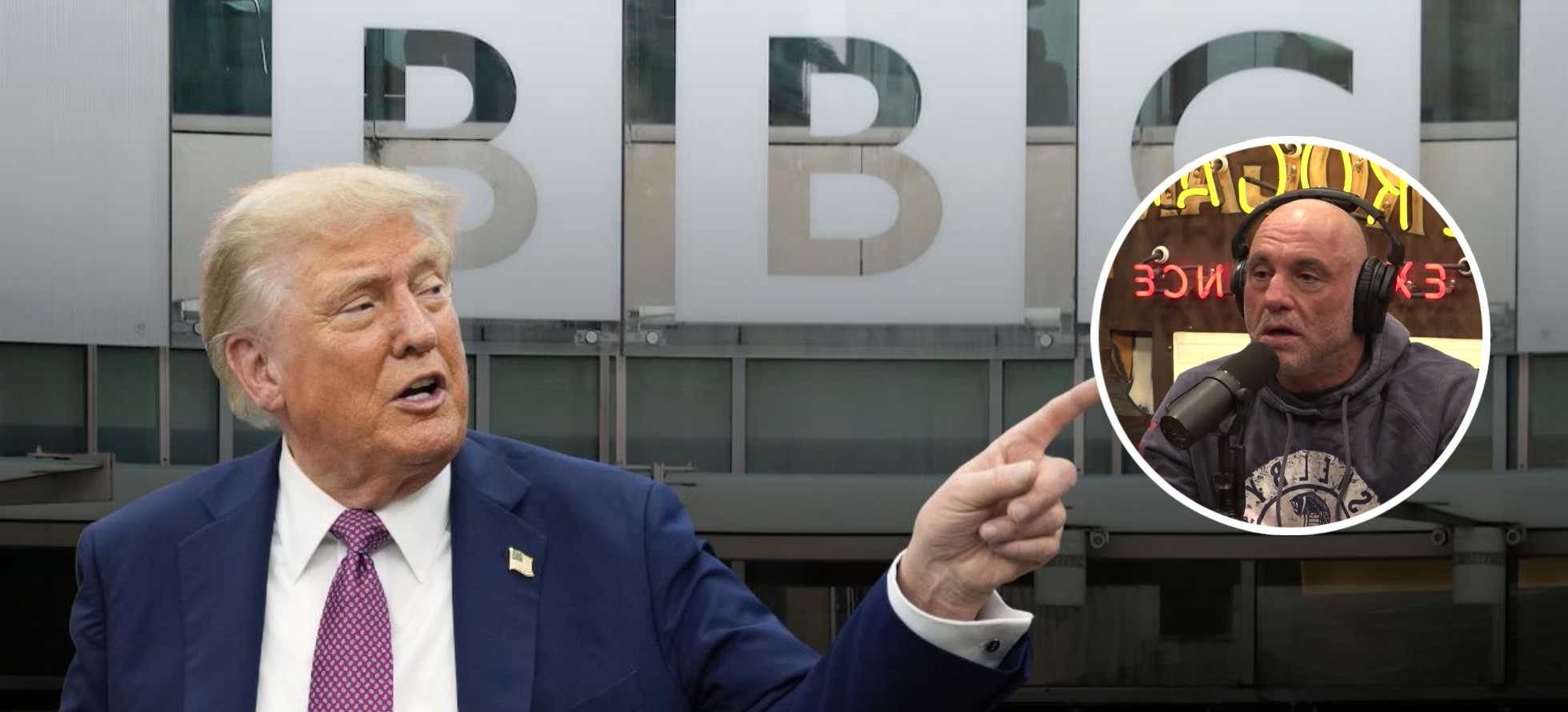Joe Rogan has never been one to shy away from controversy, and his recent commentary on the BBC‘s handling of a documentary about Donald Trump has sparked intense debate about media integrity and editorial standards.
In a recent podcast, the podcast host blasted the British broadcaster after its top executives resigned over what critics are calling a deliberate distortion of Trump’s January 6th speech.
The controversy centers on the BBC’s Panorama documentary “Trump: A Second Chance?”, which edited together separate lines from Donald Trump’s January 6, 2021 speech in a way that fundamentally altered his message.
According to Rogan, the BBC took a statement Trump made 52 minutes into his speech and placed it immediately after an earlier comment, creating the impression that he was directly inciting violence at the Capitol.
“So, they took a segment of him [Trump] saying something and then spliced in a segment of him saying something else from 53 minutes later, right?”
His guest agrees and states: “The storming of the capital. From the January 6th.”
Rogan then continues: “That is not journalism but, like, full-on lying and propaganda. And it’s kinda f**king dangerous.”
The actual sequence of events tells a different story. In the original speech, Trump said he would go down to the Capitol with supporters, followed 54 minutes later by the now-infamous line about fighting like hell. However, between these statements, Trump specifically said, “We’re going to cheer on our brave senators and congressmen and women.” The BBC’s edit completely removed this context, fundamentally changing the meaning of his words.
The fallout was swift and severe. BBC Director General Tim Davie and BBC News CEO Deborah Turness both resigned over the scandal, and Trump has since threatened a $1 billion lawsuit against the organization. For Rogan, this incident represents something far more troubling than a simple editorial mistake.
Rogan went further, suggesting that “woke s***” had warped the judgment of media professionals who should know better. In Rogan’s view, the controversy exposes a “deep rot” in mainstream media institutions that have allowed political biases to override basic journalistic ethics.
He said: “If that doesn’t show the rot of mainstream, corporate-controlled media, then nothing does. Because that’s pure rot.”
Rogan went on to talk about how people assume these big news media agencies are considered to be reliable sources: “At the top of the head, if someone quoted a source, and it was the BBC, I’d think, ‘OK, that’s like The Washington Post or The New York Times.’ It’s a very official source, so I’d assume, ‘This must be real.’”
The irony of Rogan’s critique has not been lost on observers. The podcast host himself has faced significant backlash over misinformation allegations throughout his career, particularly regarding climate change and COVID-19 claims made on The Joe Rogan Experience. These controversies previously prompted several artists to quit Spotify in protest.
However, Rogan’s supporters argue that there’s a fundamental difference between hosting controversial discussions and deliberately editing footage to misrepresent someone’s actual words.
What makes the BBC incident particularly egregious, according to Rogan, is that the original speech is publicly available online for anyone to verify. The fact that the BBC would attempt such an obvious distortion of a president’s publicly recorded speech speaks to either extreme incompetence or deliberate malice.


